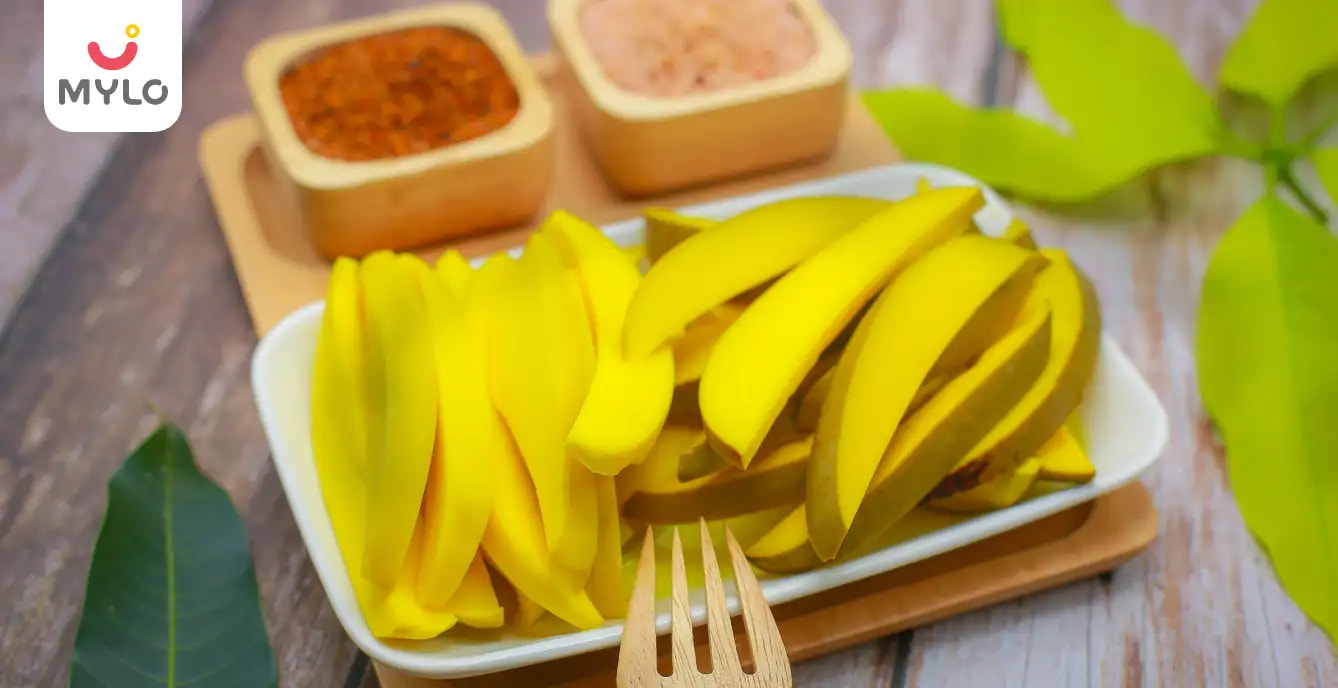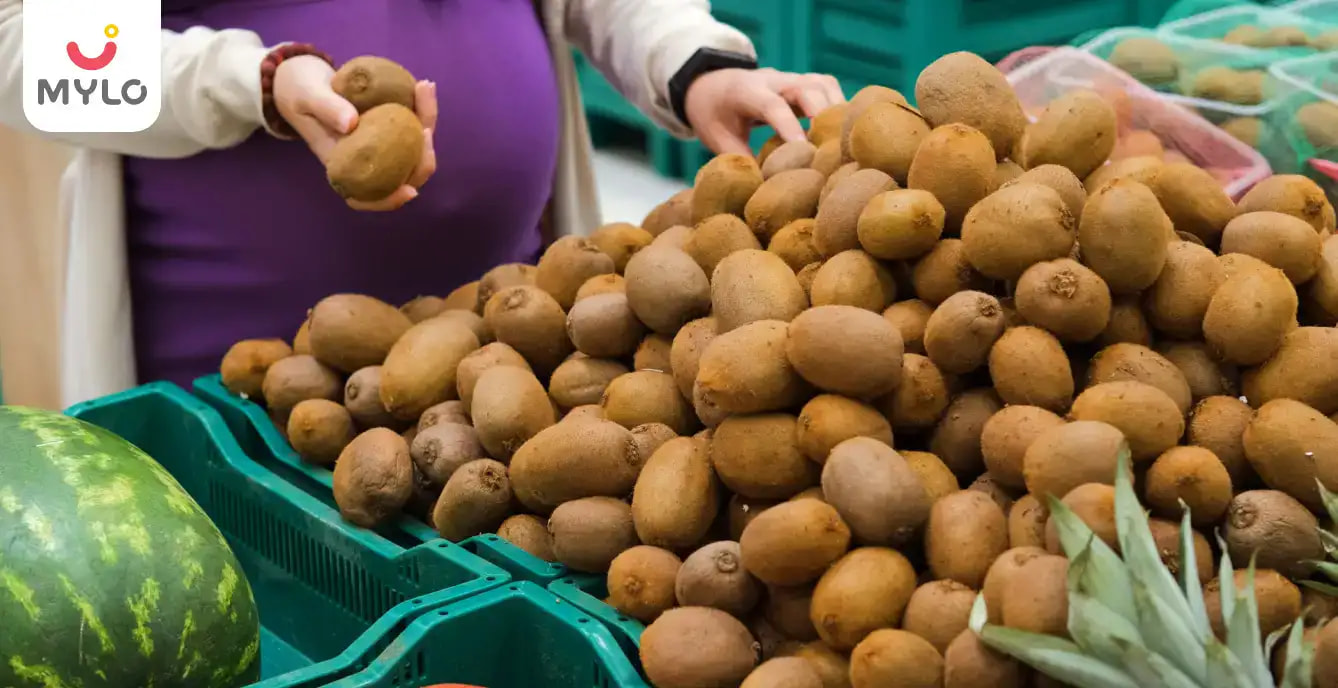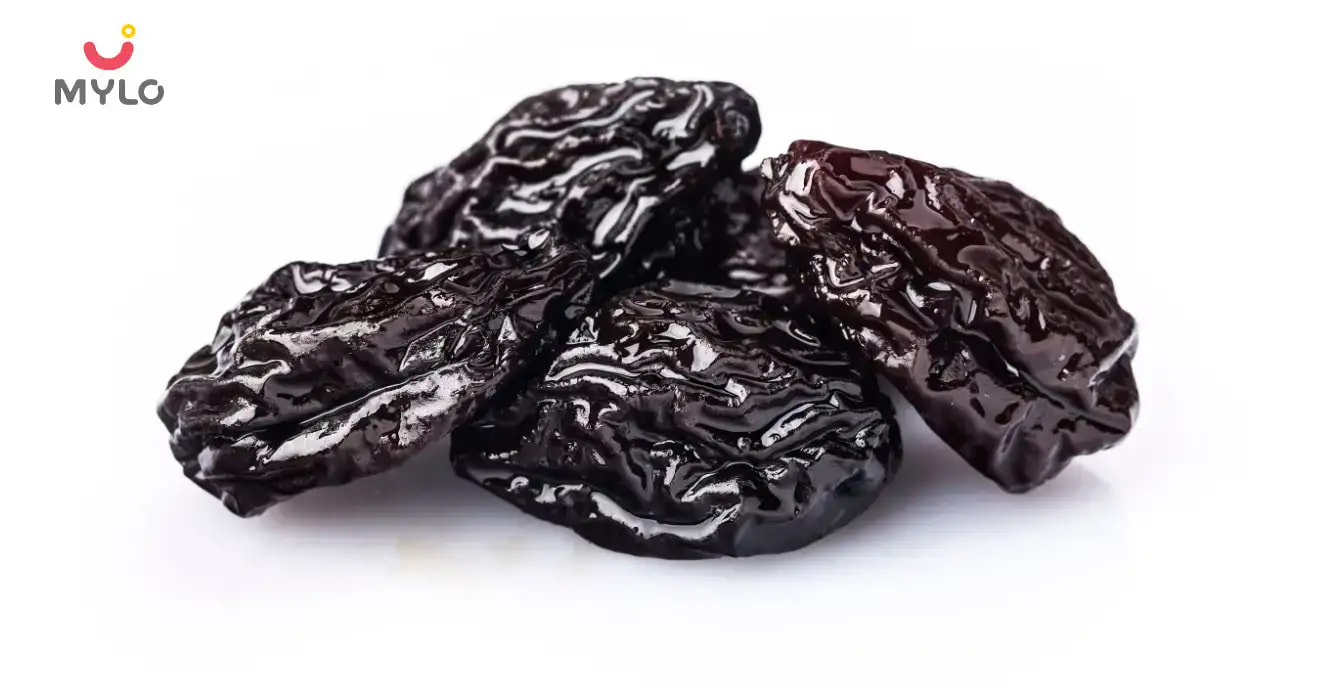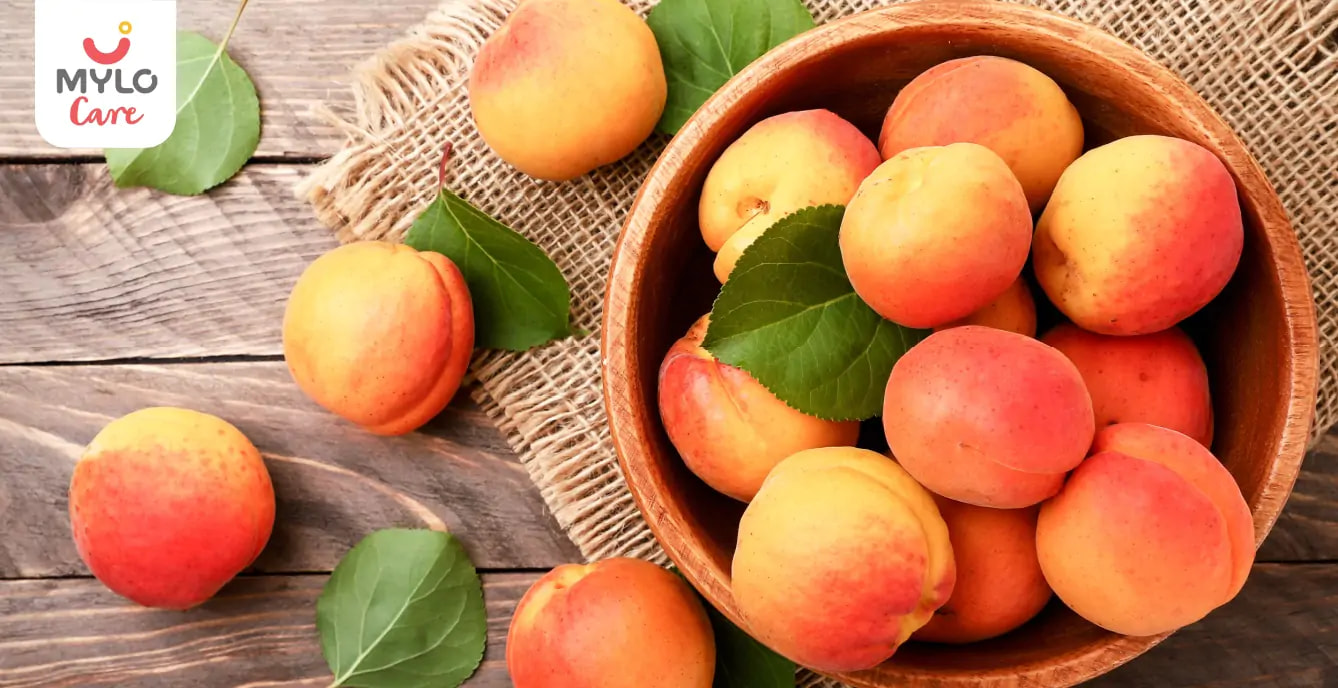Home

Pregnancy Best Foods

Mango in Pregnancy: The Ultimate Guide for Expecting Mothers
In this Article

Pregnancy Best Foods
Mango in Pregnancy: The Ultimate Guide for Expecting Mothers
Updated on 3 November 2023



Medically Reviewed by
Shwetha
Weight Loss, Diabetes - MSc in Food Science & Nutrition
View Profile

Mango, the king of fruits, is loved by many for its sweet taste and juicy texture. However, for pregnant women, the question "Is mango good for pregnancy" can be a cause for concern. But don't worry, like other tropical fruits, mango in pregnancy is absolutely safe to eat as long as you follow some necessary precautions. In this article, we will explore the safety of consuming mangoes during pregnancy and provide you with all the information you need to make an informed decision.
Is Eating Mango Safe During Pregnancy?
Mangoes are a popular fruit, but there is some controversy over whether it is safe to eat mango during pregnancy. The good news is that mangoes are generally considered safe for pregnant women to eat. They are a good source of vitamins and minerals, including vitamin C, which is important for fetal development. However, pregnant women should still take some precautions when eating mangoes, such as washing them thoroughly, avoiding underripe or overripe fruits, and consuming them in moderation.
Mango During Pregnancy First Trimester
If you're wondering whether you can eat mango in early pregnancy, especially raw mangoes, then worry no more. It's absolutely safe to eat mangoes during pregnancy first trimester. They are rich in essential nutrients like folic acid, iron, vitamin C, vitamin A, vitamin B6, and potassium, which are all vital for the growth and development of the foetus. In fact, consuming mangoes during the first trimester can assist in the growth of the nervous system of the foetus, thanks to the high concentration of folic acid in the fruit.
Mango During Pregnancy Second Trimester
Yes, it is safe to eat mangoes during pregnancy, even during the second trimester. However, it is important to consume them in moderation, especially for women with gestational diabetes due to their high sugar content. It is recommended to choose naturally ripened mangoes, wash them thoroughly, and peel the skin before consumption to avoid exposure to harmful chemicals. Pregnant women who are overweight or diabetic should consult with their doctor about the recommended daily intake.
Mango During Pregnancy Third Trimester
Mangoes have a lot of calories as well. So, they might be a good snack for your third trimester, when you need the most calories, but like every other fruit, consumption of mango during pregnancy should be moderate. If you like mangoes in a smoothie, lassi, shake, or as part of a dessert, watch out for the extra sugars and calories that come from sweeteners and cream. Dried mangoes, chutneys, murabba, and candied mangoes all have added sweeteners, so eat them only occasionally.
Is It Dangerous to Eat Too Many Mangoes During Pregnancy?
Can I eat mango during pregnancy? Yes, of course. But can you binge on mangoes during pregnancy? Well, we get it those pregnancy cravings are compelling you to overeat mangoes but hold on. Eating too many mangoes in pregnancy could lead to an increased intake of natural sugars, which can cause gestational diabetes. Additionally, consuming an excessive amount of mangoes could lead to digestive issues like diarrhea and upset stomach. However, when consumed in moderation, eating mango in pregnancy can provide a variety of essential nutrients like vitamin C, folate, and fiber, which can benefit both the mother and the baby.
Mangoes’ Nutritional Value During Pregnancy
Is mango good for pregnancy? Yes, consuming mango in pregnancy is beneficial. Mangoes are also a great way to get vitamin C. A cup of mangoes can give you 100 percent of the amount recommended for vitamin C. They are also an excellent source of antioxidants that help to protect the body against damage from free radicals. They also contain potassium, which is important for maintaining healthy blood pressure levels, as well as folate, which is essential for fetal development during pregnancy. Additionally, mangoes are a good source of dietary fiber, which can help to promote digestive health and regulate blood sugar levels.
How Many Mangoes Can I Consume During Pregnancy?
It is recommended not to have more than one mango a day since they are high in calories and could cause women to gain weight quickly. Moreover, moderate consumption of raw mango during pregnancy is recommended.
You may also like: Everything You Need to Know About Pregnancy Weight Gain
Benefits of Mango During Pregnancy
Here are some of the benefits of eating mango during pregnancy:
1. Provides vitamin C
Mangoes are a great source of vitamin C, which is an essential nutrient for pregnant women. Vitamin C helps in the absorption of iron, which is important for the development of the baby's organs and tissues. Moreover, it helps fight free radicals that might harm fetal development and produce malignant tumors.
2. Reduces risk of fetal anomalies
Eating mango during pregnancy first trimester can help decrease the risk of neurological abnormalities. Mango has vitamin B6, which is needed for fetal nervous system development.
3. Provides plenty of minerals
During pregnancy, your body needs more minerals to balance fluids. Mangoes include magnesium, calcium, salt, and potassium to maintain fluid equilibrium.
4. Helps to prevent preeclampsia
Magnesium intake during pregnancy can help prevent preeclampsia. Additionally, vitamin E and magnesium in mangoes assist in developing fetal muscles.
5. Relieve morning sickness
Consuming mango during pregnancy first trimester can also help with acidity and morning sickness. They are also full of vitamins and ensure that your body gets enough nutrients to help your baby grow and develop.
Side Effects of Mango in Pregnancy
Although mangoes are full of vitamins and minerals, they can also have certain side effects such as:
1. Digestive issues
Consuming too much mango can lead to digestive issues like diarrhea, stomach cramps, and bloating due to its high fiber content.
2. High sugar content
Mangoes contain a high sugar content. Overeating mangoes can increase your blood sugar levels during pregnancy. So, women with gestational diabetes should be cautious.
3. Excess weight gain
Mangoes are high in carbs and sugar. As a result, eating too many mangoes in pregnancy might add more kilos to your pregnancy weight.
4. Allergic reactions
Some people are allergic to mango peel or sap. In case, you're allergic too, it's better to avoid this fruit. Moreover, artificially ripened mangoes might harm the mother and the baby.
How to Tell if a Mango Is Ripened Artificially or Naturally?
To tell if a mango has ripened naturally or artificially, you can look for a few signs. Naturally ripened mangoes will have a fruity aroma and feel slightly soft to the touch. They may also have some wrinkles or blemishes on the skin. Artificially ripened mangoes, on the other hand, may have a chemical odor and feel unnaturally soft or mushy. Additionally, the skin of an artificially ripened mango may be uniformly colored without any variations or blemishes. So, before you consume mango in pregnancy, make sure to purchase them from a trusted source to ensure they have ripened naturally.
You may also like: Do You Know Which Fruits Should Be Avoided During Pregnancy?
Tips for Safe Mango Consumption
When you buy mangoes at the market, be picky about which ones you buy. Don't buy mangoes that have been ripened with chemicals. Make sure to buy them when they are in season. This will make it less likely that they have been ripened in a lab. Wash the mango thoroughly before cutting it. This will remove any dirt or bacteria that may be present on the skin.
Store the mango in a cool, dry place until it ripens, then store it in the fridge to slow down the ripening process. Don't forget to check for signs of spoilage. If the mango has mold or an unpleasant odor, it may be spoiled and should be discarded. By following these tips, you can safely enjoy the sweet and juicy goodness of mangoes and prevent a nasty case of food poisoning in pregnancy!
Mango can be blended with milk or yogurt to make healthy refreshments which can be consumed as evening snacks. These recipes are not only good in taste but these are also good snacking options. However, women with gestational diabetes should keep their blood sugar levels in check and consume mango based on their dietician's advise.
Which Mangoes Can You Eat While Pregnant?
Before you pick mangoes to eat during pregnancy, it's important to know which ones are safe for you. This takes into account raw mango during pregnancy and even the ones that are fully ripe. While raw mangoes are safe to eat during pregnancy, they can be difficult to digest and may cause acidity or indigestion. It's best to consume ripe mangoes that are properly washed and prepared. Consuming fully ripe mango in pregnancy is good because they are easier to digest and makes you feel less hungry during the day.
The Bottomline
In conclusion, mango is a delicious and nutritious fruit that can be safely consumed during pregnancy. Eating mango during pregnancy first trimester can provide essential nutrients like vitamins A and C, fiber, and potassium, which are beneficial for both the mother and the developing baby. However, it is important to consume mango in pregnancy in moderation and to ensure that it is properly washed and prepared to avoid any risk of foodborne illness.
References
1. Papanikolaou Y, Fulgoni VL 3rd. (2021). Mango Consumption Is Associated with Improved Nutrient Intakes, Diet Quality, and Weight-Related Health Outcomes. NCBI
2. Mehrabani, Davood; Mehrvarz, Sahar; Rabiee, Mina. (2019). The Effect of Aqueous and Hydroalcoholic Extracts of the Mango Fruit on Development of Embryonic Tissues during Pregnancy. International Journal of Food Sciences and Nutrition





Medically Reviewed by
Shwetha
Weight Loss, Diabetes - MSc in Food Science & Nutrition
View Profile


Written by
Loveleen Gupta
A working mother with more than two decades of experience in writing for the publishing industry and digital space, Loveleen Gupta loves dabbling in creative writing also. A graduate from Miranda House, she uses her personal experiences to express herself.
Read MoreGet baby's diet chart, and growth tips

Related Articles
Related Questions
Influenza and boostrix injection kisiko laga hai kya 8 month pregnancy me and q lagta hai ye plz reply me

Hai.... My last period was in feb 24. I tested in 40 th day morning 3:30 .. That is faint line .. I conculed mylo thz app also.... And I asked tha dr wait for 3 to 5 days ... Im also waiting ... Then I test today 4:15 test is sooooo faint ... And I feel in ma body no pregnancy symptoms. What can I do .

Baby kicks KB Marta hai Plz tell mi

PCOD kya hota hai

How to detect pcos

RECENTLY PUBLISHED ARTICLES
our most recent articles

Diet & Nutrition
গর্ভাবস্থায় আলুবোখরা: উপকারিতা ও ঝুঁকি | Prunes During Pregnancy: Benefits & Risks in Bengali

Diet & Nutrition
গর্ভাবস্থায় হিং | ঝুঁকি, সুবিধা এবং অন্যান্য চিকিৎসা | Hing During Pregnancy | Risks, Benefits & Other Treatments in Bengali

Women Specific Issues
স্তনের উপর সাদা দাগ: লক্ষণ, কারণ এবং চিকিৎসা | White Spots on Nipple: Causes, Symptoms, and Treatments in Bengali

Diet & Nutrition
গর্ভাবস্থায় পোহা: উপকারিতা, ধরণ এবং রেসিপি | Poha During Pregnancy: Benefits, Types & Recipes in Bengali

Diet & Nutrition
গর্ভাবস্থায় মাছ: উপকারিতা এবং ঝুঁকি | Fish In Pregnancy: Benefits and Risks in Bengali

Diet & Nutrition
গর্ভাবস্থায় রেড ওয়াইন: পার্শ্ব প্রতিক্রিয়া এবং নির্দেশিকা | Red Wine During Pregnancy: Side Effects & Guidelines in Bengali
- ইনার থাই চ্যাফিং: কারণ, উপসর্গ এবং চিকিৎসা | Inner Thigh Chafing: Causes, Symptoms & Treatment in Bengali
- গর্ভাবস্থায় ব্রাউন রাইস: উপকারিতা ও সতর্কতা | Brown Rice During Pregnancy: Benefits & Precautions in Bengali
- Velamentous Cord Insertion - Precautions, Results & Safety
- Unlock the Secret to Flawless Skin: 7 Must-Have Qualities in a Face Serum
- Unlock the Secret to Radiant Skin: How Vitamin C Serum Can Transform Your Complexion
- Gender No Bar: 10 Reasons Why Everyone Needs a Body Lotion
- Unlock the Secret to Radiant Skin How to Choose the Perfect Body Lotion for Your Skin Type
- Top 10 Reasons to Apply a Body Lotion After Every Bath
- Communication in Toddlers: Milestones & Activities
- How to Improve Vocabulary for Toddlers?
- A Comprehensive Guide to Understanding Placenta Accreta
- Vulvovaginitis in Toddlers Causes, Symptoms and Treatment
- A Comprehensive Guide to Understanding Cerebral Palsy in Children
- Bitter Taste in Mouth During Pregnancy: Understanding the Causes and Remedies


AWARDS AND RECOGNITION

Mylo wins Forbes D2C Disruptor award

Mylo wins The Economic Times Promising Brands 2022
AS SEEN IN

- Mylo Care: Effective and science-backed personal care and wellness solutions for a joyful you.
- Mylo Baby: Science-backed, gentle and effective personal care & hygiene range for your little one.
- Mylo Community: Trusted and empathetic community of 10mn+ parents and experts.
Product Categories
baby carrier | baby soap | baby wipes | stretch marks cream | baby cream | baby shampoo | baby massage oil | baby hair oil | stretch marks oil | baby body wash | baby powder | baby lotion | diaper rash cream | newborn diapers | teether | baby kajal | baby diapers | cloth diapers |








